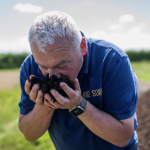Kraft Heinz - Why Regenerative Agriculture is a Business Essential
Added 3 months ago
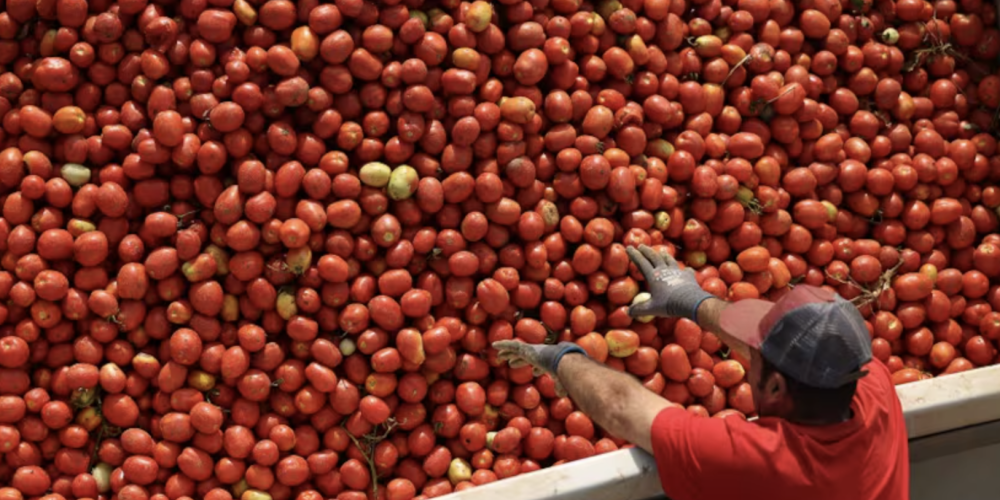
Kraft Heinz believes the case for regenerative agriculture is clear: it helps futureproof food supply chains while protecting the planet. Patrick Sheridan, the company’s VP of Global Agriculture and Sustainability, explains how the ketchup giant is working with farmers, especially in Europe, to make this vision a reality.
Partnering with Farmers to Secure the Future
“Our philosophy is simple,” says Sheridan. “By working with nature—improving soil health, boosting biodiversity, and conserving water—we protect the future of food.”
Rather than dictating a rigid checklist of practices, Kraft Heinz encourages outcome-based approaches. This flexibility allows farmers to adopt solutions that best fit their land and context. For example, the company has worked with Spain’s Conesa Group and second-generation tomato grower Manuel Vászquez for more than 20 years. Together, they’ve implemented regenerative practices that deliver higher yields with lower impact. The result? Kraft Heinz gains resilient supply and superior ingredients, while farmers enjoy better productivity and sustainability—a true win-win.
Regenerative Techniques in Action
The company takes a soil-first approach. As Henry J. Heinz once said: “To improve the quality of a food product on the shelf, you must first improve the quality of the produce in the ground.”
In Spain, cover cropping has been a game-changer—doubling yields in two decades while boosting organic matter from 0.94% to 1.8%. Neighbouring farms have since followed suit. Drip irrigation systems and soil moisture probes now optimise water use, while tomato stalks are repurposed as feed, compost, and fertiliser.
Pesticide use has been cut through data-driven techniques like threshold-based interventions and degree-day models, which predict pest lifecycles using temperature. Together, these methods reduce waste, improve soil health, and strengthen the wider farming community.
Support, Incentives, and Expertise for Growers
As the world’s largest buyer of processing tomatoes, Kraft Heinz invests heavily in its grower network. Farmers gain access to:
-
The Sustainable Agriculture Practices Manual, a global resource on responsible farming.
-
Technical expertise from HeinzSeed, which has developed tomato seeds since 1934. These unique seeds deliver high-yield, high-quality crops that withstand heat, drought, and disease—reducing reliance on water, fertiliser, and pesticides.
-
In-field agronomy support, soil sampling, and data analysis to help farmers make informed decisions.
This hands-on support reduces input costs while improving yields and quality—benefits shared by growers and the company alike.
Measuring Impact Locally and Globally
Because farming conditions vary worldwide, Kraft Heinz tailors its measurement approach. Soil sampling is used to track organic matter, pH, nutrients, salinity, compaction, and infiltration. Input efficiency (such as fertiliser and water use per tonne of tomatoes) is also carefully monitored, alongside yield and product quality.
Looking ahead, the company is exploring AI-driven integration of soil data, biodiversity indicators, and advanced tools like EC mapping to track regenerative outcomes at scale. Sheridan notes that Kraft Heinz welcomes collaboration with innovators in this space.
The Business Case: Resilient Supply and Reduced Emissions
Healthy soil not only grows better tomatoes, it uses fewer resources—supporting Kraft Heinz’s goals to cut Scope 3 emissions. Stronger grower livelihoods and more efficient resource use ultimately make the supply chain more resilient against climate change and other disruptions.
“The business case for regenerative agriculture is overwhelming,” Sheridan concludes. “It ensures Heinz tomatoes remain the high-quality, delicious ingredient behind our ketchup—while safeguarding natural resources and supporting farming communities for the next 150 years.”
Join the conversation
Be the first to leave a comment.
Leave a comment
All comments are reviewed before they are published on the website. Your email address will not be published.
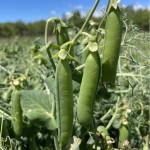
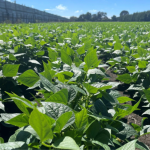

Community Engagement and Knowledge Sharing Strengthen the Carbon Positive Project
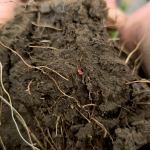
Are We Changing Soil Carbon Yet? Three Years In, the Jury’s Still Out

Farewell to Trustee Phil Schofield – A Foundational Leader of the HBFFCT
